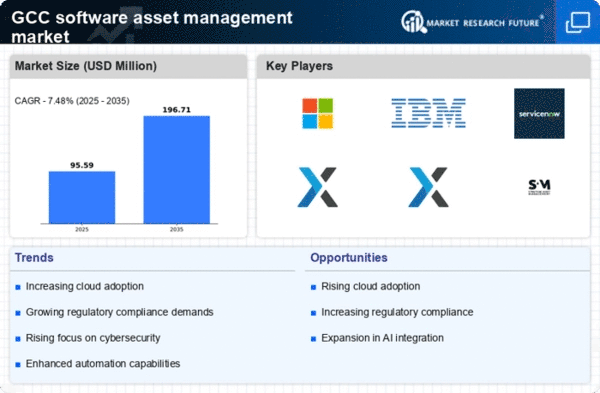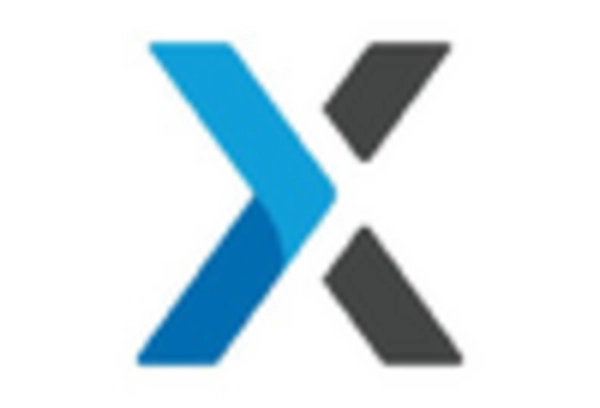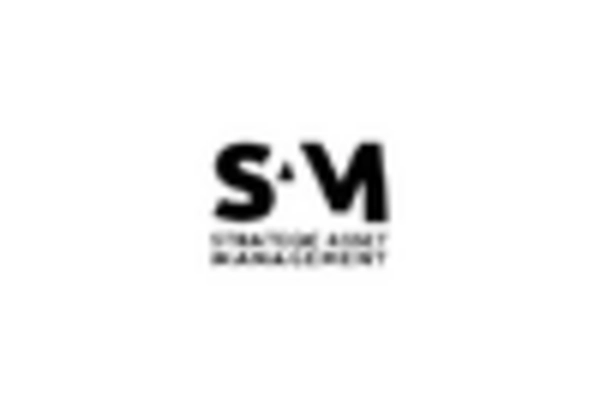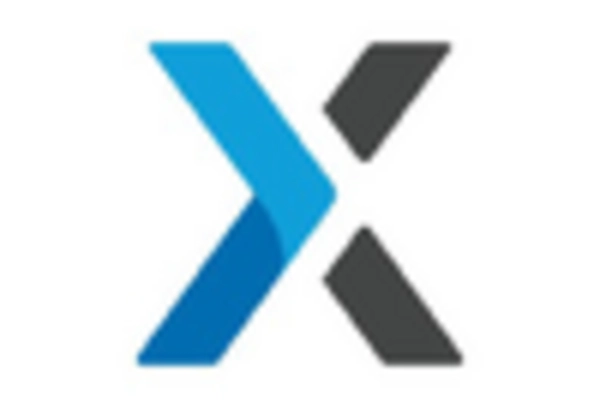Growing Regulatory Pressures
In the GCC, the software asset-management market is increasingly influenced by growing regulatory pressures. Governments and regulatory bodies are implementing stricter compliance requirements, compelling organizations to adopt robust software asset management practices. This trend is particularly evident in sectors such as finance and healthcare, where compliance with data protection and software licensing regulations is paramount. Organizations that fail to comply may face significant penalties, which can reach millions of dollars. As a result, the demand for software asset-management solutions that ensure compliance is on the rise. Companies are investing in software tools that provide visibility into their software usage and licensing, thereby mitigating risks associated with non-compliance. This regulatory landscape is expected to drive growth in the software asset-management market as businesses prioritize compliance and risk management.
Emergence of Remote Work Trends
The software asset-management market is adapting to the emergence of remote work trends in the GCC. As organizations shift towards flexible work arrangements, the need for effective management of software assets has become more pronounced. Remote work environments often lead to increased software usage and, consequently, a greater risk of license non-compliance. Companies are now seeking software asset-management solutions that can provide visibility and control over software usage across distributed teams. This shift is likely to drive innovation in the market, as vendors develop tools that cater specifically to the challenges posed by remote work. The ability to manage software assets effectively in a remote setting is becoming a critical factor for organizations, thereby propelling growth in the software asset-management market.
Increased Focus on Cybersecurity
The software asset-management market is witnessing an increased focus on cybersecurity within the GCC region. As cyber threats become more sophisticated, organizations are recognizing the importance of securing their software assets. Effective software asset management not only involves tracking licenses but also ensuring that software is up to date and free from vulnerabilities. According to industry reports, organizations that implement comprehensive software asset-management strategies can reduce their risk of cyber incidents by as much as 40%. This heightened awareness of cybersecurity risks is prompting businesses to invest in software asset-management solutions that incorporate security features. Consequently, the software asset-management market is evolving to meet these demands, offering tools that enhance security while managing software assets effectively.
Rising Demand for Cost Efficiency
The software asset-management market is experiencing a notable surge in demand for cost efficiency among organizations in the GCC. Companies are increasingly recognizing the financial benefits of optimizing software usage, which can lead to substantial savings. According to recent data, organizations that implement effective software asset management strategies can reduce software costs by up to 30%. This trend is driven by the need to allocate resources more effectively and minimize waste. As businesses strive to enhance their operational efficiency, the software asset-management market is positioned to grow, providing tools and solutions that facilitate better tracking and management of software licenses. This focus on cost efficiency is likely to continue shaping the market landscape, as organizations seek to maximize their return on investment in software assets.
Technological Advancements in Software Management
Technological advancements are playing a pivotal role in shaping the software asset-management market in the GCC. The integration of advanced technologies such as artificial intelligence and machine learning is enhancing the capabilities of software asset-management solutions. These technologies enable organizations to automate processes, improve accuracy in license tracking, and gain insights into software usage patterns. As a result, businesses are increasingly adopting sophisticated software asset-management tools that leverage these advancements. The market is projected to grow as organizations seek to harness technology to optimize their software assets. Furthermore, the ability to analyze data effectively can lead to better decision-making regarding software investments, thereby driving the demand for innovative solutions in the software asset-management market.
















